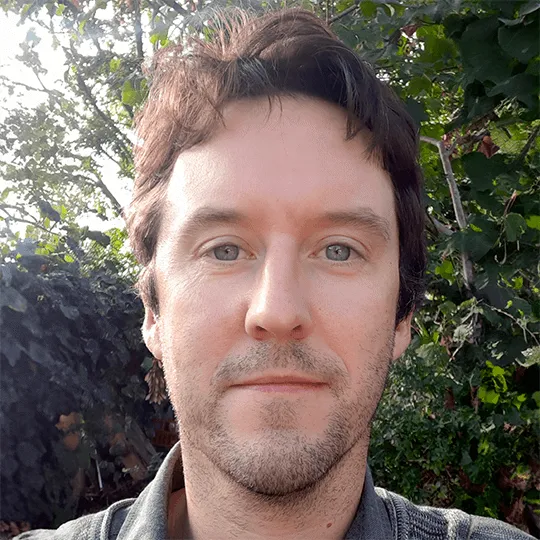People who hear voices rarely only hear one. In an interesting development, the Extended version of the therapy proved effective at reducing voice frequency in total, despite participants only creating one avatar for one voice.
Philippa Garety, Professor Emerita of Clinical Psychology at King’s IoPPN and the study’s lead author
28 October 2024
Multi-site trial uses digital avatars to effectively reduce distressing voices in psychosis
A novel therapy using computer-generated avatars has found to be an effective way of helping people with psychosis reduce the distress and frequency with which they hear voices.
A new multi-site trial from the Institute of Psychiatry, Psychology & Neuroscience (IoPPN) at King’s College London has found that a novel therapy using computer-generated avatars is an effective way of helping people with psychosis reduce the distress and frequency with which they hear voices.
AVATAR therapy is a series of guided therapy sessions during which voice hearers are able to have a conversation with an animated digital representation of their distressing voice. The research, published in Nature Medicine, has been recommended by a NICE Early Value Assessment, with the researchers now seeking to provide it in routine NHS settings to gather further real world evidence of effectiveness is gathered over the next three years.
Before the therapy, participants work with a therapist to create a computerised visual representation of the voice that they hear (the avatar). Therapy involves a three-way conversation between the voice hearer, therapist and avatar, with the therapist speaking as themselves as well as voicing the avatar using voice conversion software. Over several sessions, participants learn to stand up to the voice and take control.
This study represents the culmination of more than a decade's worth of research. The therapy was first created by Dr Julian Leff and the voice conversion system was built by Professor Mark Huckvale at University College London, and published its first results in 2013.
The researchers recruited 345 participants from eight clinical settings in four centres linked to the Universities of Glasgow, Manchester, UCL and King’s. They were randomly assigned to receive either AVATAR Brief (six sessions of therapy), AVATAR Extended (12 sessions of more personalised therapy), or continue with their usual support. The researchers conducted follow up interviews at the end of therapy (16 weeks) and three months after therapy concluded (28 weeks) to assess the effectiveness of the intervention across several measures, investigating the long-term impact on the related distress, severity and frequency of voices, as well as participant mood and wellbeing.
Researchers found that, at the 16-week follow-up, participants in both the Brief and Extended versions of the therapy showed statistically significant improvements in voice-related distress, voice severity, empowerment, mood and wellbeing compared to those who did not receive the therapy. Participants who received AVATAR Extended also saw a reduction in the frequency of distressing voices.
While AVATAR’s effects on distress did not differ significantly at the 28-week mark, compared to those receiving their usual support, researchers did find that AVATAR Extended was an effective means of reducing the frequency of distressing voices and increasing participants’ empowerment and wellbeing over the longer-term compared to treatment.
Professor Garety added: “To our knowledge, this is the first therapeutic intervention that has a direct and sustained impact upon the frequency with which people hear voices. This is an extremely important finding, as it is a clear priority for voice hearers, and hearing fewer voices, less often, or voices going away altogether can have a hugely positive impact on their day-to-day lives."
I was hearing 40 to 50 abusive voices a day. With the help of AVATAR therapy, that went down to 4 or 5. I felt like I was taking back control of my life.
Nick, a former AVATAR trial participant
Thomas Craig, Emeritus Professor of Social Psychiatry at King’s IoPPN and one of the study’s co-senior authors, said "It is enormously gratifying that the AVATAR2 study has confirmed and extended the findings of our earlier research showing AVATAR therapy to be an innovative and effective treatment for one of the most persistent and distressing experiences of schizophrenia. The ground is laid for the therapy to become widely available in routine care."
The research team are now investigating how AVATAR therapy could be rolled out across England, as well as conducting further research with mental health teams across the world. In March 2024, the National Institute for Health and Care Excellence (NICE) conducted an Early Value Assessment (EVA) for medical technology and have since recommended the therapy be used in the NHS while researchers continue evaluation.
Dr Thomas Ward, Research Clinical Psychologist at King’s IoPPN, Clinical Lead for AVATAR therapy and one of the study’s co-senior authors, said “Our latest findings have demonstrated the effectiveness of AVATAR therapy across multiple sites. With these results and the NICE Early Value Assessment recommendation, we hope to see AVATAR therapy available in several NHS Trusts in 2025.”
Dr Clementine Edwards, a Wellcome Early Career Award Fellow and Research Clinical Psychologist at King’s IoPPN and AVATAR2 Trial Coordinator, said ““The AVATAR technology allows both patient and therapist to hear the voice together, this shared experience is such a powerful and unique aspect of AVATAR therapy”
Miranda Wolpert, Director of Mental Health at Wellcome said, “It is very exciting to see the emergence of a powerful new digital therapy that could be life changing for people who hear voices. This study builds on more than a decade of pioneering research. AVATAR therapy has been shown to reduce the distress people experience from auditory hallucinations and the frequency with which they hear them. This is a striking example of how mental health science can drive forward cutting-edge treatments, providing new ways to intervene early to help improve and resolve symptoms.”
The study was conducted with leading methodologists and statisticians in the Mental Health & Neuroscience Clinical Trial Statistics Group, part of King’s Clinical Trials Unit.
This research was possible thanks to funding from Wellcome, with support provided by the National Institute of Health and Care Research (NIHR) Maudsley Biomedical Research Centre (BRC), NIHR Manchester BRC and NHS Research Scotland.
'Digital AVATAR therapy for distressing voices in psychosis: the phase 2/3 AVATAR2 trial' (Philippa A. Garety, Clementine J. Edwards, Hassan Jafari, Richard Emsley, Mark Huckvale, Mar Rus-Calafell, Miriam Fornells-Ambrojo, Andrew Gumley, Gillian Haddock, Sandra Bucci, Hamish J. McLeod, Jeffrey McDonnell, Moya Clancy, Michael Fitzsimmons, Hannah Ball, Alice Montague, Nikos Xanidis, Amy Hardy, Thomas K. J. Craig, & Thomas Ward) was published in Nature Medicine. DOI: 10.1038/s41591-024-03252-8.
For more information, please contact Milly Remmington (School of Mental Health & Psychological Sciences Communications Manager).






